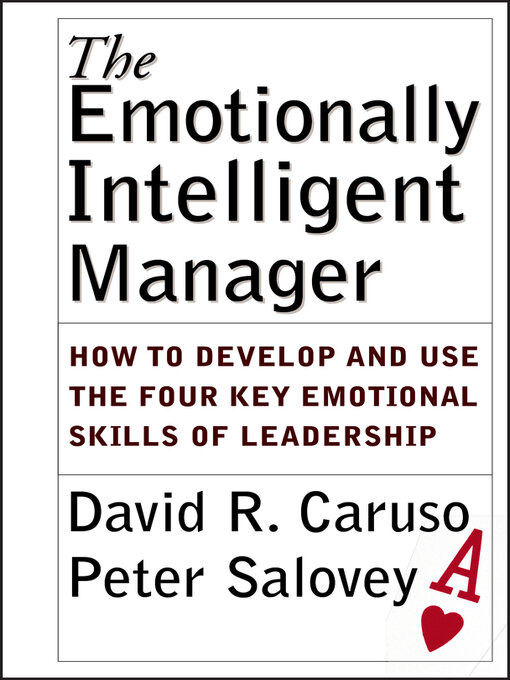-
Description
-
Creators
-
Details

- David R. Caruso - Author
- Peter Salovey - Author
Kindle Book
- Release date: March 15, 2004
OverDrive Read
- ISBN: 9780787974220
- Release date: March 15, 2004
PDF ebook
- ISBN: 9780787974220
- File size: 1340 KB
- Release date: March 15, 2004
